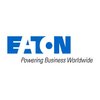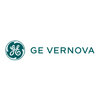Filter interviews by
Sterling and Wilson Renewable Energy Interview Questions and Answers
14 Interview questions
Transformer maintenance involves regular inspection, cleaning, and testing to ensure optimal performance and prevent breakdowns.
Inspect transformer components for signs of wear and tear
Clean transformer components to prevent buildup of dirt and debris
Test transformer oil for impurities and replace if necessary
Check for loose connections and tighten as needed
Monitor transformer temperature and vibration levels
Perfo...
Module testing involves testing individual units or modules of a software application.
Identify the individual modules to be tested
Develop test cases for each module
Execute the test cases and record the results
Fix any issues found during testing
Repeat the process for each module until all are tested
Module connection refers to the process of connecting different modules or components in an electrical system.
Module connection involves connecting different components or modules in an electrical system to ensure proper functioning.
It is important to ensure that the connections are secure and properly insulated to prevent electrical hazards.
Different types of connectors such as wire-to-board, board-to-board, and ...
I have experience in cable testing and laying through my previous projects and internships.
I have knowledge of different types of cables and their specifications
I have experience in using cable testing equipment such as multimeters and cable fault locators
I am familiar with cable laying techniques and safety protocols
I have worked on projects involving cable installation for power distribution and communication ne...
Transformer testing involves various tests to ensure proper functioning and safety of transformers.
Tests include insulation resistance, winding resistance, turns ratio, and polarity tests.
Other tests include short circuit impedance, open circuit and load loss, and temperature rise tests.
Testing is important to ensure proper functioning and safety of transformers, as well as to detect any faults or defects.
Testing ...
I use various techniques such as current measurement and temperature sensing to monitor strings in electrical systems.
I monitor the current flowing through each string to detect any abnormalities or faults.
I also use temperature sensors to detect any overheating in the strings.
I may use other techniques such as voltage measurement or impedance analysis depending on the specific system.
Regular monitoring and analys...
A bolted connection design involves selecting appropriate bolts, nuts, and washers to join two or more components together.
The design must consider the loads and stresses that the connection will experience
The bolt size, grade, and material must be selected based on the required strength and corrosion resistance
The number and spacing of bolts must be determined to evenly distribute the load
Proper tightening torque...
Pile foundation is used for heavy structures while isolated foundation is used for light structures.
Pile foundation transfers load to deeper soil layers while isolated foundation transfers load to the soil directly beneath it.
Pile foundation is used for structures like bridges, high-rise buildings, and industrial plants while isolated foundation is used for houses, small buildings, and sheds.
Pile foundation requir...
The nominal stress for mild steel plate depends on the thickness of the plate and the yield strength of the steel.
Nominal stress is the maximum stress that a material can withstand before it fails
For mild steel, the nominal stress is typically calculated using the yield strength of the steel
The thickness of the plate also plays a role in determining the nominal stress
The formula for calculating nominal stress is: ...
I have a basic understanding of hydrology and its principles.
I have studied hydrology as part of my civil engineering degree
I understand the water cycle and how it relates to hydrology
I am familiar with common hydrological models such as HEC-HMS and SWMM
I have worked on projects that involved hydrological analysis and design
I am willing to learn more about hydrology to improve my skills
Sterling and Wilson Renewable Energy Interview Experiences
6 interviews found
I appeared for an interview in Jan 2025.
(1 Question)
- Q1. Normal Questions
Details Discussion about my current JD
Interview Preparation Tips
During the interview process, they made it clear that they were unwilling to offer even a minimal salary increase, expecting candidates to join at their current CTC. This approach reflects a biased attitude where only senior employees ("Buddhas") are deemed worthy of financial growth, while juniors and new hires are expected to accept stagnant salaries, regardless of their need or contributions.
It is disappointing to see such an unfair mindset, where only a select few are considered deserving of career growth and financial well-being while others are expected to settle for less. Companies should recognize that every employee, regardless of their experience level, has a family to support and deserves a fair opportunity for financial and professional advancement.
I applied via Approached by Company and was interviewed in Aug 2024. There were 2 interview rounds.
Construction concrete design
Basic concepts of construction concrete test
I applied via Job Portal and was interviewed in Jul 2022. There were 3 interview rounds.

(9 Questions)
- Q1. How well verse you are with staad
- Ans. I can model, analyse and design steel and RCC structures
- Q2. How will you design a foundation
- Ans.
A foundation is designed by analyzing soil conditions, determining load requirements, selecting appropriate materials, and creating a structural design.
Conduct a soil investigation to determine soil type, bearing capacity, and potential for settlement
Calculate the load requirements based on the weight of the structure and any anticipated loads
Select appropriate materials for the foundation, such as concrete, steel, or ...
- Q3. Diffrence between pile and isolated foundation
- Ans.
Pile foundation is used for heavy structures while isolated foundation is used for light structures.
Pile foundation transfers load to deeper soil layers while isolated foundation transfers load to the soil directly beneath it.
Pile foundation is used for structures like bridges, high-rise buildings, and industrial plants while isolated foundation is used for houses, small buildings, and sheds.
Pile foundation requires mo...
- Q4. How is a bolted connection design
- Ans.
A bolted connection design involves selecting appropriate bolts, nuts, and washers to join two or more components together.
The design must consider the loads and stresses that the connection will experience
The bolt size, grade, and material must be selected based on the required strength and corrosion resistance
The number and spacing of bolts must be determined to evenly distribute the load
Proper tightening torque must...
- Q5. What is nominal stress for a mild steel plate
- Ans.
The nominal stress for mild steel plate depends on the thickness of the plate and the yield strength of the steel.
Nominal stress is the maximum stress that a material can withstand before it fails
For mild steel, the nominal stress is typically calculated using the yield strength of the steel
The thickness of the plate also plays a role in determining the nominal stress
The formula for calculating nominal stress is: Nomin...
- Q6. Minimum reinforcement for RCC columns , beams , slabs
- Ans.
Minimum reinforcement for RCC columns, beams, slabs is specified in codes and depends on various factors.
Minimum reinforcement is specified in codes such as IS 456 for Indian standards and ACI 318 for American standards.
The minimum reinforcement depends on factors such as the size of the member, the type of loading, and the exposure conditions.
For example, the minimum reinforcement for a column may be 0.8% of the cross...
- Q7. How well verse you are in hydrology
- Ans.
I have a basic understanding of hydrology and its principles.
I have studied hydrology as part of my civil engineering degree
I understand the water cycle and how it relates to hydrology
I am familiar with common hydrological models such as HEC-HMS and SWMM
I have worked on projects that involved hydrological analysis and design
I am willing to learn more about hydrology to improve my skills
- Q8. What do you know about solar industry
- Ans.
Solar industry involves the production and distribution of solar energy through various technologies.
Solar industry is a rapidly growing sector globally
It includes the production of solar panels, solar cells, and other related equipment
Solar energy is used for various purposes such as electricity generation, heating, and cooling
The industry is heavily dependent on government policies and incentives
Major players in the ...
- Q9. How does solar module work
- Ans.
Solar modules convert sunlight into electricity using photovoltaic cells.
Photovoltaic cells absorb sunlight and release electrons, creating a flow of electricity.
The electricity generated by the cells is direct current (DC), which is converted to alternating current (AC) by an inverter.
The AC electricity is then used to power homes, businesses, and other electrical devices.
Solar modules can be installed on rooftops, in...
(2 Questions)
- Q1. Describe your goals in breif
- Ans.
My goals as a Design Engineer include innovation, sustainability, and continuous learning to create impactful designs.
Innovate: Aim to develop cutting-edge products, like a new eco-friendly material for construction.
Sustainability: Focus on designs that minimize environmental impact, such as energy-efficient systems.
Continuous Learning: Stay updated with the latest technologies and trends, like 3D printing advancements...
- Q2. Where do you see yourself in 5 years
Interview Preparation Tips
- Civil engineering
- Pile Foundation
- Solar power plant
I applied via Referral and was interviewed in Apr 2022. There were 2 interview rounds.

(2 Questions)
- Q1. How to do module testing
- Ans.
Module testing involves testing individual units or modules of a software application.
Identify the individual modules to be tested
Develop test cases for each module
Execute the test cases and record the results
Fix any issues found during testing
Repeat the process for each module until all are tested
- Q2. How to do transformer maintenance
- Ans.
Transformer maintenance involves regular inspection, cleaning, and testing to ensure optimal performance and prevent breakdowns.
Inspect transformer components for signs of wear and tear
Clean transformer components to prevent buildup of dirt and debris
Test transformer oil for impurities and replace if necessary
Check for loose connections and tighten as needed
Monitor transformer temperature and vibration levels
Perform re...
Interview Preparation Tips
I applied via Referral and was interviewed in Dec 2021. There were 3 interview rounds.

(1 Question)
- Q1. Related to profile questions was asked.
(1 Question)
- Q1. Discussion on salary
Interview Preparation Tips
I applied via Walk-in and was interviewed before Oct 2021. There were 2 interview rounds.

(4 Questions)
- Q1. What you know about Transformer testing
- Ans.
Transformer testing involves various tests to ensure proper functioning and safety of transformers.
Tests include insulation resistance, winding resistance, turns ratio, and polarity tests.
Other tests include short circuit impedance, open circuit and load loss, and temperature rise tests.
Testing is important to ensure proper functioning and safety of transformers, as well as to detect any faults or defects.
Testing is ty...
- Q2. How you doing string monitoring
- Ans.
I use various techniques such as current measurement and temperature sensing to monitor strings in electrical systems.
I monitor the current flowing through each string to detect any abnormalities or faults.
I also use temperature sensors to detect any overheating in the strings.
I may use other techniques such as voltage measurement or impedance analysis depending on the specific system.
Regular monitoring and analysis of...
- Q3. How you doing cable testing and laying
- Ans.
I have experience in cable testing and laying through my previous projects and internships.
I have knowledge of different types of cables and their specifications
I have experience in using cable testing equipment such as multimeters and cable fault locators
I am familiar with cable laying techniques and safety protocols
I have worked on projects involving cable installation for power distribution and communication network...
- Q4. What you know about module connection
- Ans.
Module connection refers to the process of connecting different modules or components in an electrical system.
Module connection involves connecting different components or modules in an electrical system to ensure proper functioning.
It is important to ensure that the connections are secure and properly insulated to prevent electrical hazards.
Different types of connectors such as wire-to-board, board-to-board, and wire-...
Interview Preparation Tips
Safety and quality is most important in work
Top trending discussions






Interview questions from similar companies

I applied via Company Website and was interviewed before Jan 2021. There were 3 interview rounds.
Interview Questionnaire
1 Question
- Q1. Related to distribution network, safety and Quality of work related.
Interview Preparation Tips

I applied via Recruitment Consultant and was interviewed before May 2020. There were 3 interview rounds.
Interview Questionnaire
1 Question
- Q1. Position & JD
Interview Preparation Tips

I appeared for an interview before May 2016.
Interview Questionnaire
1 Question
- Q1. Tell us about yourself
- Ans.
I am a recent graduate with a degree in Marketing and a passion for digital media. I have experience in social media management and content creation.
Recent graduate with a degree in Marketing
Passionate about digital media
Experience in social media management and content creation
Interview Preparation Tips
Experience: RESUME SHORTLIST
College Name: IIT Roorkee

I appeared for an interview before Nov 2016.
Interview Questionnaire
3 Questions
- Q1. About yourself
- Q2. Will you work at any location
- Ans.
Yes, I am willing to work at any location for the Senior Engineer position.
I am open to relocating for the right opportunity
I have experience working in different locations
I am flexible and adaptable to new environments
- Q3. Why you think you can work in any adverse situation
- Ans.
I have a proven track record of staying calm and focused in challenging situations, allowing me to problem-solve effectively.
I have experience working in high-pressure environments and have successfully delivered projects on time despite obstacles.
I am adaptable and can quickly assess a situation to determine the best course of action.
I have strong problem-solving skills and can think creatively to find solutions in ad...
Interview Preparation Tips
Duration: 1 hour
Total Questions: 100
Round: Group Discussion
Duration: 20 minutes
Sterling and Wilson Renewable Energy Interview FAQs
Tell us how to improve this page.
Sterling and Wilson Renewable Energy Interviews By Designations
- Sterling and Wilson Renewable Energy Civil Quality Engineer Interview Questions
- Sterling and Wilson Renewable Energy Electrical Engineer Interview Questions
- Sterling and Wilson Renewable Energy Design Engineer Interview Questions
- Sterling and Wilson Renewable Energy Site Engineer Interview Questions
- Sterling and Wilson Renewable Energy Senior Accounts Executive Interview Questions
- Sterling and Wilson Renewable Energy Senior Manager Interview Questions
Interview Questions for Popular Designations
Overall Interview Experience Rating
based on 5 interview experiences
Difficulty level
Duration
Interview Questions from Similar Companies
Sterling and Wilson Renewable Energy Reviews and Ratings
based on 120 reviews
Rating in categories
|
Deputy Manager
28
salaries
| ₹8.4 L/yr - ₹13.8 L/yr |
|
Senior Manager
28
salaries
| ₹17.7 L/yr - ₹29.1 L/yr |
|
Senior Engineer
27
salaries
| ₹4.5 L/yr - ₹9 L/yr |
|
Electrical Engineer
22
salaries
| ₹3.2 L/yr - ₹6.3 L/yr |
|
Assistant Manager
21
salaries
| ₹5.8 L/yr - ₹13 L/yr |

Suzlon Group

Adani Power

Adani Group

NTPC
- Home >
- Interviews >
- Sterling and Wilson Renewable Energy Interview Questions










